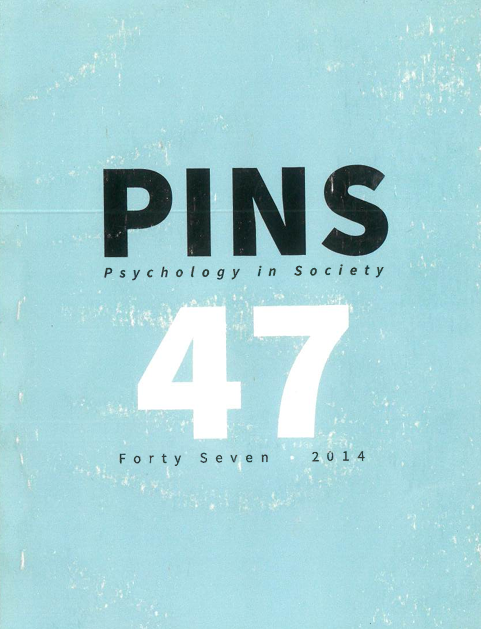The traumatic history of psychoanalysis
DOI:
https://doi.org/10.17159/2309-8708/2014/n47a9Abstract
Kuriloff , Emily A (2014) Contemporary psychoanalysis and the legacy of the Third Reich: History, memory, tradition.
New York: Routledge.
ISBN 978-0-415-88319-1 pbk.
Pages xvi +177.
In the final chapter of Contemporary psychoanalysis and the legacy of the Third Reich (2014), Emily Kuriloff refers to having asked psychoanalyst Jack Drecher whether he thought the field of psychoanalysis had been influenced by “the Shoah” (p143). The answer Kuriloff quotes, “How could psychoanalysis not have been influenced by its own history” may be, as she suggests, characteristically Jewish (in responding to a question with another one) but it is, of course, much more than that. How could the most terrifying genocide in living memory, directed to the extermination of the very people that gave rise to the description of psychoanalysis as “the Jewish profession”, have not influenced both the theory and practice of psychoanalysis in important ways?
Downloads
Downloads
Published
How to Cite
Issue
Section
License
This journal is an open access journal, and the authors' and journal should be properly acknowledged, when works are cited.
Authors may use the publishers version for teaching purposes, in books, theses, dissertations, conferences and conference papers.
A copy of the authors’ publishers version may also be hosted on the following websites:
- Non-commercial personal homepage or blog.
- Institutional webpage.
- Authors Institutional Repository.
The following notice should accompany such a posting on the website: “This is an electronic version of an article published in PINS, Volume XXX, number XXX, pages XXX–XXX”, DOI. Authors should also supply a hyperlink to the original paper or indicate where the original paper (http://www.journals.ac.za/index.php/pins) may be found.
Authors publishers version, affiliated with the Stellenbosch University will be automatically deposited in the University’s’ Institutional Repository SUNScholar.
Articles as a whole, may not be re-published with another journal.
The copyright of the article(s) lies with the author(s).
The copyright of the journal lies with PINS-psychology in Society.
The following license applies:
Attribution CC BY-NC-ND 4.0 - https://creativecommons.org/licenses/by-nc-nd/4.0/

